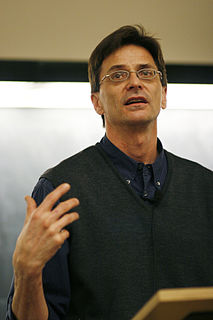A Quote by Simon Mainwaring
Without question, CEOs, executives and employees in companies in the United States and around the world have rallied to face the challenge of a social media marketplace.
Related Quotes
The challenge CEOs will face three to five years from now is the same one that they face today. That is engagement. It's hard to keep people engaged in what they are doing. As this generation grows up around social media like Twitter where things are 140 characters, how do you keep them engaged all hours every day at work? How do you keep them focused on the big goals you have?
The United States is a society in which people not only can get by without knowing much about the wider world but are systematically encouraged not to think independently or critically, and instead to accept the mythology of the United States as a benevolent, misunderstood giant as it lumbers around the world trying to do good.
Social media is something of a double-edged sword. At its best, social media offers unprecedented opportunities for marginalized people to speak and bring much needed attention to the issues they face. At its worst, social media also offers 'everyone' an unprecedented opportunity to share in collective outrage without reflection.
I think the President's decision to withdraw the United States, to keep a campaign promise in Iraq, without leaving a stay-behind force was a mistake, and I hear that from veterans in Wyoming and from parents who lost children fighting in Iraq. We're seeing it, though, around the world. When we, the United States leads a vacuum anywhere, that emboldens others to go in, when there is no sense of deterrence by the United States that lets bad actors move and fill the void.
The potential of Mexico, Canada and the United States is enormous. We have a combined population of half a billion people; peaceful trade-friendly borders that are the envy of the world; the prospect of energy independence is within reach and will change the geopolitical situation of United States; we do a trillion dollars in trade among the three countries; more than 18,000 American companies are involved in foreign direct investment in Mexico and Canada; an increasing number of Mexican companies are creating jobs in the United States.
The ideals and the values of the United States inspired the entire world. I don't think any of us can say that our standing in the world now, the way children around the world look at the United States, is the same. And part of what we need to do is to send a message to the world that we are going to invest in issues like education, we are going to invest in issues that relate to how ordinary people are able to live out their dreams. And that is something that I'm going to be committed to as president of the United States.


































